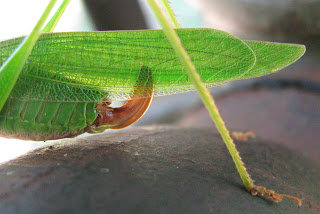Social psychologists describe a very nice quality that we humans possess—something that is planted deep in our psyche; something that has been bred into us by evolution: a natural inclination to reciprocate kind behavior when it is shown to us. If someone does something nice to us, we feel an urge to return the favor.
However, there's another, negative side of the coin: when someone mistreats us we often have an equally natural inclination to reciprocate with like mistreatment. Revenge is a deep instinct of ours. Indeed, much of human history is replete with violence, as humans often strike back, in retaliation. Although that is an important topic on its own, I will focus here on the positive side of the coin: our returning favor for favor.
It makes sense that we feel a yearning to return kindness with kindness, when we consider it from an evolutionary perspective. When our deep ancestors reciprocated the altruistic behaviors of community members, it pulled the community together. The clan became stronger and more cooperative. It strengthened the group, so that they survived better than clans who didn't cooperate. The noncooperative group went extinct, while the altruistic group thrived.
So altruistic exchange strengthens our connections to one another. And thanks to evolution, it's literally in our genes. We are thankful for it and enjoy its benefits. That said, there's a bit of a problematic side to friendly reciprocity: it opens us up to being scammed. Salespeople have known this and have cleverly used it for ages. If, as a salesman, you offer someone a token favor, you've earned a little leverage to get them to cooperate with you. Thus, the reciprocity tendency can be used to manipulate people and sell them stuff they'd otherwise not want.
Salespeople are often extremely solicitous before they sell you their product. They are your best friend; they have all the time in the world to be with you; and they're apt to gift you with little mementos. Once you respond and buy, however, attempts to reach the formerly friendly salesperson—if you have a question or a complaint—very often go unanswered.
As another example, we may get “free” offers from salespeople to enjoy a gratuitous meal, in exchange for the “opportunity” to purchase a time-share condominium in some idyllic location. Watch out! After the free meal, you will be forced to endure a coercive session, where you will be expected to return the favor of a meal by buying your very own condo.
But to return to my starting point: we are genetically programmed to reciprocate, when someone does us a favor. It's nice to be able to respond in kind. There are, however, times when we can't return the kindness to the individual who benefited us. What do we do then? How do we deal with the propensity to respond kindly, when we can't? Many people say that the right thing to do is to pass it on to others. That's an honorable thing to do. The “Pay it Forward” movement arose years ago to do just that. The reciprocity of kindness to others can spread around, to the benefit of everyone.
So which side of the coin predominates in society—returning kindness or revenge? That's an argument that I don't wish to wade into here. I'd just like to recognize and celebrate the fact that altruistic exchanges are inherent in us and that we all can benefit from this natural positive urge.





